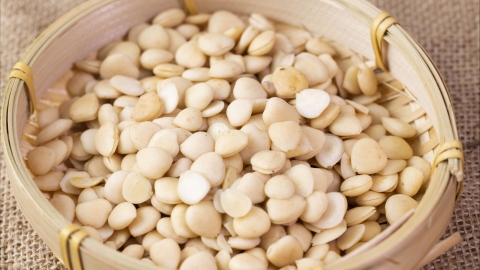Why do bitter apricot kernels cause poisoning?
Under normal circumstances, the causes of poisoning from bitter apricot kernels include the decomposition of amygdalin, improper consumption methods, excessive intake, individual differences, and deterioration of the bitter apricot kernels. The specific details are as follows:

1. Decomposition of Amygdalin
Bitter apricot kernels contain amygdalin, a type of cyanogenic glycoside. Within the body, amygdalin can be hydrolyzed by intestinal microbial enzymes or the enzyme emulsin present in the bitter apricot kernel itself, producing hydrogen cyanide. Hydrogen cyanide is a highly toxic substance that poses serious health risks to humans.
2. Improper Consumption Methods
Consuming bitter apricot kernels without proper processing or preparation can easily lead to poisoning. For example, eating raw bitter apricot kernels or those not sufficiently heated may result in poisoning because the amygdalin hasn't been effectively broken down.
3. Excessive Consumption
Even processed bitter apricot kernels may cause poisoning if consumed in excessive amounts. This is because the toxic effects of amygdalin are closely related to the intake level; excessive consumption can overwhelm the body's detoxification capacity, leading to poisoning symptoms.
4. Individual Differences
Different individuals have varying tolerances to amygdalin. Some people may be sensitive to even small amounts of amygdalin and experience adverse reactions easily, while others may only experience poisoning after consuming larger quantities. These individual differences increase the risk of poisoning.
5. Deterioration of Bitter Apricot Kernels
Spoiled bitter apricot kernels may contain higher levels of harmful substances, including increased amygdalin content or other toxic components, thereby increasing the risk of poisoning. Therefore, it is important to carefully check the freshness and quality of bitter apricot kernels before consumption and avoid eating spoiled ones.
When consuming bitter apricot kernels, they should be handled with caution and intake should be controlled to avoid poisoning. If poisoning symptoms occur, immediate medical treatment should be sought.




